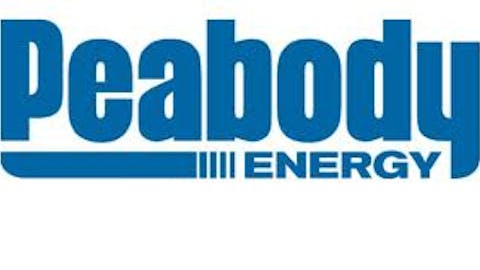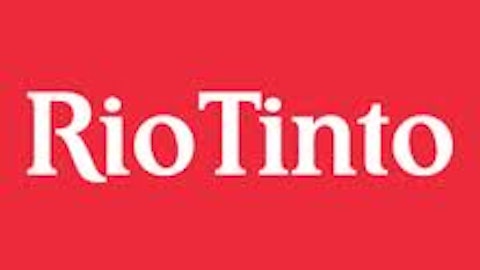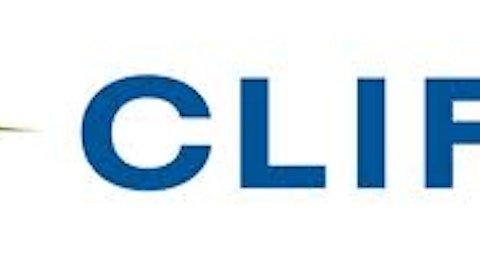The recent earnings reports from steel companies have shown that there is significant overcapacity in the industry. This overcapacity continues to put pressure on steel prices. In turn, lower steel prices put pressure on iron ore and met coal prices. There is a company that produces both iron ore and met coal – Cliffs Natural Resources Inc (NYSE:CLF). The combination of the above-mentioned commodities has led to a 48% decline this year for Cliffs. The company’s recent quarterly report has shown that Cliffs Natural Resources Inc (NYSE:CLF) is on track to meet the challenging environment, however.

Coal sales jump
Cliffs Natural Resources Inc (NYSE:CLF)’ earnings came 29% above analysts’ expectations. The company has managed to generate $414 million in cash from operations. The ability to generate cash is crucial in current tough conditions. Commodities-related companies that are surrounded by doubt regarding their ability to generate enough cash to sustain their operations are punished hard by the market. The best example is Walter Energy, Inc. (NYSE:WLT), a pure met coal play that is down 69% this year.
Cliffs Natural Resources Inc (NYSE:CLF) has reported that its North America coal sales volume has increased by an astonishing 36%. At the same time, the company’s cash cost decreased 20% year-over-year. Because of cost management, Cliffs Natural Resources Inc (NYSE:CLF) was able to generate a coal profit despite the lower market pricing for coal.
This is the kind of performance that Walter Energy needs to turn its fortunes around. The company is stuck with $2.6 billion of debt on its balance sheet. In June, Walter Energy, Inc. (NYSE:WLT) announced that it was going to refinance its debt, but a week later the company has turned on this decision. The rates were too high for the troubled miner. Walter Energy, Inc. (NYSE:WLT) has since slashed its dividend by 92%. This has raised solvency questions among some investors and has caused the stock to tank once again. I’m supportive of this move, however, as it frees the much-needed cash for the company.
Iron ore sales improve too
U.S. iron ore sales were up 5.5% in the recent quarter from the same quarter of 2012. The domestic steel industry is still pressured by imports. Cliffs stated that steel imports continued to increase in North America, particularly from Japan and Korea. The strengthening of U.S. dollar has added to the pressure.
The iron ore market continues to be soft. This is a source of worry for companies like Rio Tinto plc (ADR) (NYSE:RIO), which gets 48% of its revenue from iron ore sales. Despite the soft market, Rio Tinto continues to expand its Australian and Canadian operations. Rio Tinto plc (ADR) (NYSE:RIO)’s iron ore production rose 7% in the recent quarter to a record 66 million tons. Rio Tinto plc (ADR) (NYSE:RIO)’s expansion of its iron ore production puts more pressure on an already weak market. In addition to that, the slowdown of China’s economic growth also threatens the iron ore market.





